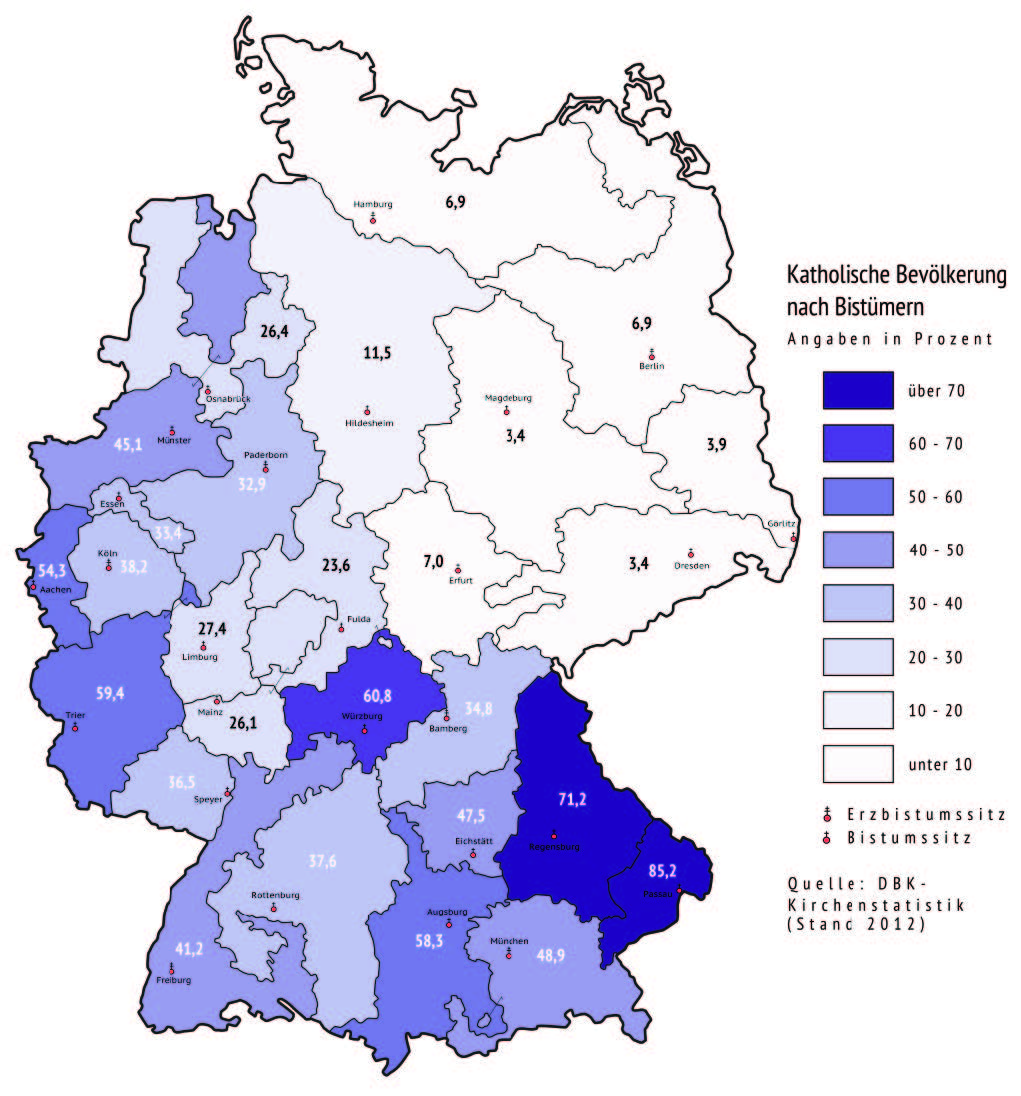
The Catholic church in Germany is drawing scrutiny and criticism from the Vatican for its liberal reform agenda, particularly over the issue of blessing same-sex unions. Catholicism in Germany and in other German-speaking lands, such as Austria, has long been a bastion of progressive church reform initiatives, but church leaders’ latest pronouncements have made observers wonder if a schism might be developing in the church. On the news service Religion Unplugged (March 1), Clemente Risi reports that German bishops have brought church reform back to the forefront of their agenda after years of struggle with the clergy sex abuse crisis and the challenges of secularism and church membership decline. In February, a German bishop wrote a column defending his support for a book of blessings and rites for gay unions. The bishop, Peter Kohlgraf of Mainz, also said Catholics who are gay should not be expected to live a chaste life. The book of blessings, entitled Couples, Rites, Church, is published by a publishing house affiliated with the Archdiocese of Paderborn, and carries a foreword by Bishop Ludger Schepers, an auxiliary bishop in the Diocese of Essen. “Kohlgraf is the latest in a series of German prelates publicly calling for changes in the church’s stance on homosexuality. There have also been similar appeals in neighboring Austria,” Risi writes.

Percentage of Roman Catholics in Germany, 2012 (Alexander Altenhof, CC BY 3.0 <https://creativecommons.org/ licenses/by/3.0>; via Wikimedia Commons <https://commons.wikimedia.org/wiki/File:Roman_catholics_germany_2012_de.svgFile:Roman_catholics_germany_2012_de.svg)
In 2020, Bishop Georg Bätzing, president of the German bishops’ conference, called for changes to the section on same-sex marriage in the Catechism of the Catholic Church. Other issues raised during the 2020 meeting of the conference included women in leadership and intercommunion with Protestants. In late February, the conference elected a woman for the first time as its head administrator and then appointed Beate Gilles, a 50-year-old female theologian, as general secretary. At that time Bätzing also announced he would continue to give Holy Communion to Protestants who asked for it. The concern about the German church’s blessing of same-sex unions, whether overt or tacit, was the immediate occasion for the Vatican’s statement rejecting such blessings, writes theologian Robert Imbelli on the blog of First Things magazine (March 19). But the wider context of the Vatican’s concern about the German church is the so-called “Synodal Path” underway there. Preliminary documents of the Synodal Path, which consists of a series of conferences to discuss theological and organizational issues, have “raised widespread concern that what is in the offing is not the development of doctrine, but the relativizing and undermining of doctrine. And this coheres all too closely with the therapeutic ethos that characterizes much of Western Catholicism,” Imbelli writes.